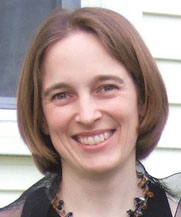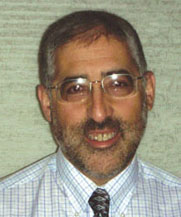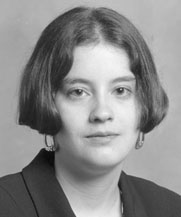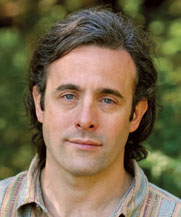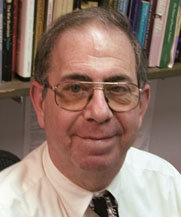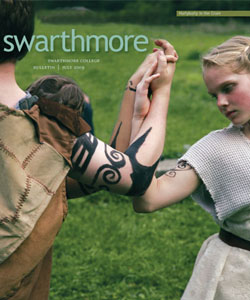At the Heart of Honors
Alumni Examiners Reflect on the Honors Program—Then and Now.
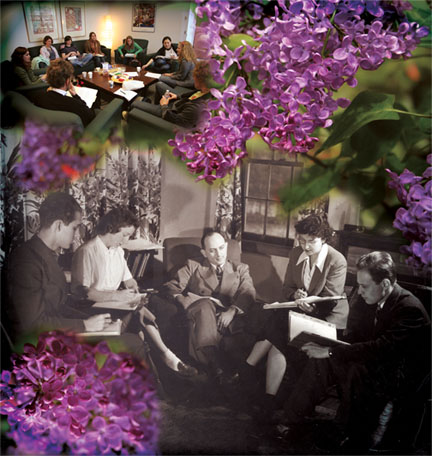
Honors students study psychology with Professor Solomon Asch in 1952 (bottom). “What happens between the examiner and the honors student is an intellectual dialogue, an in-depth probing of what the student has said in his or her written exam,” says Craig Williamson, professor of English Literature and coordinator of the Honors Program (top left, with back to camera, teaching an honors English seminar). The program has undergone several revisions since its founding in 1922 by President Frank Aydelotte, but it remains the signature intellectual experience of the College.
Spring flowers bloom and warm breezes stir the air as another academic year draws to a close at Swarthmore. But first, seniors sitting for honors must face written and oral evaluations by examiners who are among the best in their areas of expertise. It is an exciting and demanding time for students and examiners alike—an experience that is at the heart of Swarthmore’s Honors Program.
Swarthmore’s distinctive Honors Program— first modeled on the tutorial system at Oxford University—was created in 1922 under the leadership of Frank Aydelotte, the College’s seventh president. Revised several times since its establishment, the latest revision in 1994 added flexibility and new disciplines to the program.
For honors examiners who are also honors graduates, the end of the academic year is an especially poignant time. We asked 11 of them to reflect on their experiences. Six of their essays are here. The remainder are on the Web, linked to this article at bulletin.swarthmore.edu.
—Susan Cousins Breen
.
.
WENDY CADGE ’97
I was oblivious to the lilacs blooming at Swarthmore in the spring of 1997. I was engrossed in preparing for my honors exams. I was taking three exams in religion and one in sociology and anthropology based on the thesis I wrote about congregations that publicly welcome gay and lesbian people in the United Methodist Church. R. Stephen Warner, a sociologist at the University of Illinois-Chicago and a colleague of my adviser, Joy Charlton, would be examining my thesis, and I was nervous. I referenced his research throughout my thesis, had read most of the other articles he had written, and could not believe I was going to spend an hour talking with him about my work.
The day of the exam arrived, and as I talked with Warner, I scribbled notes on yellow pieces of lined paper. He offered some praise and asked a number of hard questions. I carried those pieces of yellow paper through my next five years in graduate school, a reminder that a scholar I admired had engaged with my research, taken me seriously, and thought I could be a “real” sociologist.
In 2006, I returned to campus to examine Thomas Showalter’s thesis “‘Politics is Not My Game:’ Evangelical Pastors and Political Participation.” I had since finished a Ph.D. at Princeton University, taught at Bowdoin College, and completed a two-year fellowship through the Robert Wood Johnson Foundation Scholars in Health Policy Research Program. I read Showalter’s thesis carefully, came prepared with a list of questions, and aimed to show him the same kind of intellectual engagement that Warner had shown to me. We spoke about his field research, his conceptual approach, and the strengths and weaknesses of the project as it had developed. I learned from his thesis—something I had not imagined possible for an honors examiner when I was a student.
As I walked down to Sharples Dining Hall to join the other honors examiners for lunch, past the students on Parrish Beach who had just completed their exams, I thought again about the intellectual respect and engagement that is at the heart of the Honors Program. This kind of serious engagement with colleagues, faculty, and examiners has and continues to model for me the best of academic life. I was and remain grateful for the opportunity to participate, as a student and examiner.
Cadge is an associate professor of sociology at Brandeis University and the author of Heartwood: The First Generation of Theravada Buddhism in America (University of Chicago Press 2005). During the 2008–2009 academic year, she was a Susan Young Murray Fellow at the Radcliffe Institute for Advanced Study at Harvard University. During her fellowship year, she worked on a book to be titled Paging God: Religion in the Halls of Medicine.
DAVID CHAPMAN ’82
In retrospect, the Honors Program was terrific training for graduate school. As I approached my honors exams in spring 1982, all I kept thinking was “these are the last tests I’ll ever have to take!” That forecast was quite wrong. As a part of my doctoral training, I went on to take comprehensive exams, field exams, a dissertation proposal seminar, and a dissertation defense seminar, and it seems impossible to recapture the level of naiveté I had as a college senior.
I have had the privilege of giving the honors exam in financial economics twice. Reflecting on those experiences, I am struck by the maturity and confidence of the students. Poised, articulate, well prepared, and apparently sure of where they were going, all seemed to have great jobs lined up and were ready to leave Swarthmore. The oral portions of the exams were invariably more discussions of current events in financial markets than intense “grilling” of the students. Did my examiners see me the same way? Does honors preparation breed at least the outward appearance of confidence?
At Boston College, I am head of the doctoral program in the Finance Department at the Carroll School of Management. We have fine (and successful) doctoral students, but both times I gave the exam at Swarthmore, I left campus wishing that I could take at least one of the graduating students with me. The opportunity to serve as an outside examiner has made me appreciate the unique character of the Honors Program—and it makes me glad that I’m not trying to get into Swarthmore today. I doubt I’d stand a chance compared to the students I have examined.
Chapman is director of the Finance Department’s doctoral program in the Carroll School of Management at Boston College. His research and teaching interests include asset pricing theory and portfolio management. At Swarthmore, he was an honors economics major and political science minor.
RACHAEL EVADNE GOODHUE ’93
The Honors Program brought me to Swarthmore. Twice. As a student, honors seminars were as long, intense, and challenging as I had hoped they would be. The professors were even more knowledgeable and creative. What I hadn’t imagined before I began the program was how rewarding it would be to prepare for seminars by reading, writing seminar papers, and completing problem sets. I hadn’t imagined how much I would learn from my fellow students in seminars—and while preparing. In honors, we learned how to master a subject, rather than how to master a syllabus or a set of syllabi. The examinations over all of my honors topics at the end of the senior year created a true capstone experience. For me, the economics involved in American social history became more apparent as did the socio-political forces that underlie the field of economic development.
As a professor, I seek to integrate what I experienced as an honors student into my undergraduate and graduate teaching. Thus, it was a very special privilege for me to be invited to serve as an honors examiner in economic development in 2003. What struck me most was how little the core experience had changed for students. The students I examined had mastered the material, and not just the high points of the syllabus. They were committed to thinking about important issues in economic development: the role of agriculture, women and development, and how economic development interacts with the natural environment. Serving as their examiner was an inspiring experience that allowed me to give something back to the Swarthmore honors community.
Goodhue is an associate professor in the Department of Agricultural and Resource Economics at the University of California–Davis.
ALEXANDER HUK ’96
I have no reflections on my time as an honors student at Swarthmore. I think that’s the point of the program. You can spend long nights polishing your horn-rimmed glasses while pontificating about the virtues of immersion in your studies. Or you can be too immersed to dabble in such metacognitive indulgences. I prefer the latter.
In retrospect, my honors experience as a psychology major did help me acknowledge that you go to school not to go to school but to interact more effectively in the world. For me, that amounted to developing a passionate interest in understanding the mind and the brain. This is a pursuit I have continued to this day, and the multiple steps of training that led me from honors student to professor of neurobiology and psychology have felt more or less seamless. Despite many wonderful experiences at other fancy institutions since my Swarthmore days, I still look back at the basic honors-induced insight—that the world is populated not by exams, but by ideas to be had and work to be done—with the most fondness.
Coming back to Swarthmore as an honors examiner is a different experience altogether. Even a nuts-and-bolts type like myself grows misty eyed with revisionist nostalgia for the institution and overcome with fatherly fondness for the Swarthmoreans I get to grill. Soft-focus reminiscence aside, I’ve had one striking experience: These examinees are not good students; they are not students at all. They are great (young—but great) scientists. I quickly find myself departing from my examination script and just talking science with them. The better the exam goes, the more nonplussed the examinee appears—was that really “The Exam” that’s been brewing these last two years? Maybe they were expecting a Cambridge accent and a powdered wig. I figure doing science doesn’t usually involve much pomp or circumstance, so having a real discussion is the point.
During these discussions, I admit to sometimes wondering whether I was nearly so impressive when I was an examinee, but I am quickly distracted to less neurotic matters: Was the campus always so pretty? Are they spoiling the new generation with that “frou-frou” coffee bar? And so begins the ascent to old age…. I’ll assume it’s okay so long as I can still trudge up that steep staircase in Papazian for another go at it.
Huk is an assistant professor of neurobiology at the University of Texas–Austin and a neuroscientist who studies how signals in the brain give rise to perceptual experiences and intelligent behavior. A CAREER Award from the National Science Foundation and a grant from the National Institute of Health fund his research.
RICHARD MANSBACH ’64
I graduated from Swarthmore in 1964 with high honors in political science, history, and Spanish. The eight written and oral exams were among the most grueling experiences I have ever had and made virtually every later academic experience seem easy. I remember the experience as though it were yesterday.
There was the political theorist who asked me about Machiavelli’s economic philosophy, to which I unhappily answered that I didn’t know he had any economic ideas. He beamed and said, “Precisely! Hah! I’ve had your fellow students call him a Marxist, an early liberal, and so forth.” Another examiner could not seem to understand why anyone would write an honors thesis on a minute Spanish colony called Ifni. Unwilling to admit that the topic wasn’t earth shattering, I merely responded: “To you, sir, Ifni may seem modest, but to a Spaniard, ah to a Spaniard. . . .” (I hoped that he wouldn’t notice that I hadn’t answered his question.)
On three occasions, I have had the pleasure of changing roles and returning to Swarthmore as an honors examiner for international politics. Convinced, as are many alumni by my age, that students today have an easier lot than we did, I discovered that, in fact, little had changed. Angst-ridden students remain immensely talented and well- prepared. On one of these occasions, I was paired with a second examiner who became known as the “bad cop” to my “good cop.” Nevertheless, we discovered that our evaluations of students were identical.
During the two years I was on Swarthmore’s faculty and the three visits I made as an examiner, I became aware that Swarthmore faculty are as angst-ridden as their students during exam week and, that examiners, like the faculty, actually “root” for students, hoping that they will get high or highest honors, and are desperately unhappy if students fail to do well. Indeed, in examiners meetings to determine level of honors, “boos” have been heard when a student’s overall ranking is lowered by a single examiner and held breath followed by cheers when a candidate received high marks on all exams.
Having taken and evaluated honors exams and having taught honors students, only one further honors-related experience awaits me–that of an angst-ridden parent, waiting to find out how well my daughter, Rachel ’11, does in her honors exams, an experience that she, like her father, will carry with her the rest of her life.
Mansbach is a professor of political science at Iowa State University, where he teaches international relations. He has written or edited 15 books on international relations theory and has chaired political science departments at Rutgers and Iowa State.
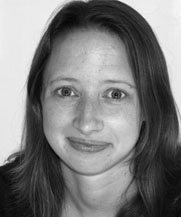
TARA ZAHRA ’98In the spring semester of my senior year, I took Pieter Judson’s honors seminar on fascism. Between January and March, I decided to go to graduate school to study Central European history. It was a major leap in the dark to decide to devote my life to studying a place I’d never been and whose language I didn’t speak (I’d never been abroad before, except for a weeklong trip to Athens with the Peaslee Debate Society my senior year).
TARA ZAHRA ’98
In the spring semester of my senior year, I took Pieter Judson’s honors seminar on fascism. Between January and March, I decided to go to graduate school to study Central European history. It was a major leap in the dark to decide to devote my life to studying a place I’d never been and whose language I didn’t speak (I’d never been abroad before, except for a weeklong trip to Athens with the Peaslee Debate Society my senior year).
Honors played a huge role in that decision. I’d always loved history, and it seemed like my professors really liked their jobs, but I couldn’t imagine caring enough about one subject (even fascism) to become a professor. I also never really imagined myself as an intellectual or a scholar, even after three-and-a-half years at Swarthmore. I was interested in a lot of other things—dancing, journalism, politics, and economics. But history got under my skin through the Honors Program—I spent more and more time on fascism and less on everything else, including sleeping. It was incredibly exciting. I started to think of myself as someone who might be able to contribute something to the field eventually.
The actual exams are the least important part of honors, but it is impossible to be convinced of that when you are spending your last weeks of college cramming two years worth of material into your brain. I remember thinking I would probably never be smarter than the day the written exams began. I studied for the exams by making little history note cards. I used those same cards to study for my orals in graduate school five years later.
Honors was also a good social experience. We had fabulous themed seminar breaks (like boiled turnips, the week we studied World War I), and I became good friends with the other honors students. When the exams ended, I went out to decompress with my friend Emily Willits ’98, also an honors history major. We tried to read some trashy magazines to unwind but couldn’t even do that—it hurt too much to look at words. Then there was a party on Parrish Beach, and Charlie Mayer ’98, who was a firefighter, brought a big red fire truck up in front of Parrish; I rode around in the fire truck, which seemed like a good ending to it all.
But it didn’t really end there. After graduation, I studied German in Vienna for the summer, living with John Kosinski ’99, another student from the fascism seminar who was Pieter Judson’s research assistant. My honors examiner, Bill Bowman from Gettysburg College, happened to be in Vienna, doing research of his own and gave us a tour of the city and took us out for ice cream. I did a little bit of research for Pieter that summer, reading these crazy nationalist journals from the turn of the century and actually used some of that material in my dissertation and book.
I feel incredibly honored to come back to Swarthmore as an honors examiner, especially as the fascism examiner! I have been waiting to be the honors examiner since I started graduate school. It’s a wonderful feeling to come back to Swarthmore as the colleague of your former professors and to talk to students who could become your own future colleagues. I am excited to meet the students and to hear their ideas about fascism.
Zahra is an assistant professor of history at the University of Chicago, where she teaches modern Central and East European history. Currently, she is working on a book about the history of displacement and the family in 20th-century Europe.
 Email This Page
Email This Page